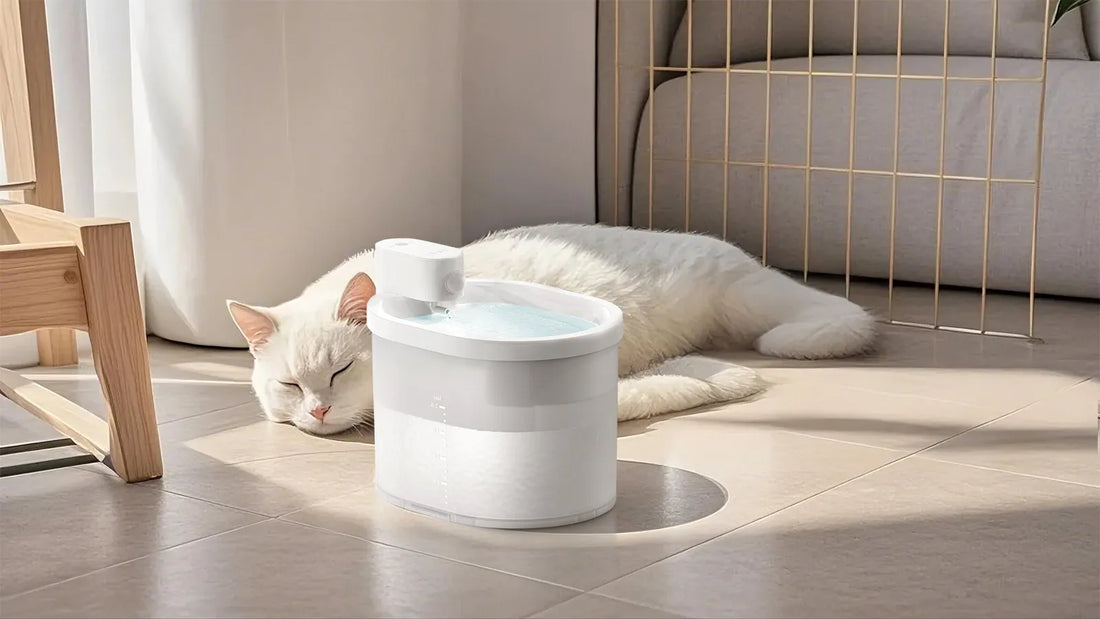For decades, the image of a cat happily lapping up a bowl of milk has been a staple in popular culture. From children's books to cartoons, this scene is often portrayed as the epitome of feline contentment. But is this portrayal accurate? Should cats really be drinking milk? Let's dive into the myths, facts, and essential information every cat owner needs to know.
The Origins of the Cat and Milk Myth
The association between cats and milk dates back centuries. In agrarian societies, cats were often kept on farms to control rodent populations. Farmers would reward their feline helpers with a saucer of fresh milk, believing it to be a nutritious treat. Over time, this practice became ingrained in popular culture, leading to the widespread belief that milk is a natural and healthy part of a cat's diet.
The Science Behind Cats and Milk
While the image of a cat drinking milk is endearing, the reality is more complex. Most cats are lactose intolerant, meaning they lack the enzyme lactase needed to properly digest lactose, the sugar found in milk. When a lactose-intolerant cat consumes milk, it can lead to digestive issues such as diarrhea, vomiting, and stomach cramps. Kittens, on the other hand, produce lactase in sufficient quantities to digest their mother's milk, but this ability diminishes as they grow older.
Nutritional Needs of Cats
Cats are obligate carnivores, which means their diet must consist primarily of animal-based proteins. Unlike humans and some other animals, cats do not require carbohydrates or dairy products to meet their nutritional needs. In fact, feeding a cat a diet high in milk or other dairy products can lead to nutritional imbalances and health problems. It's essential to provide your cat with a balanced diet that meets their specific dietary requirements.
Potential Health Risks of Feeding Milk to Cats
Feeding milk to cats can pose several health risks. As mentioned earlier, lactose intolerance is a common issue, but there are other concerns as well. Milk is high in calories and fat, which can contribute to obesity in cats. Additionally, some cats may develop allergies to the proteins found in milk, leading to skin irritations, itching, and other allergic reactions. It's crucial to be aware of these risks and consult with a veterinarian before introducing milk or any new food into your cat's diet.
Alternatives to Milk for Cats
If you're looking for a safe and healthy treat for your cat, there are several alternatives to milk that you can consider. Specialized cat milk products, which are lactose-free and formulated to meet feline nutritional needs, are available in pet stores. Additionally, you can offer your cat small amounts of plain, unsweetened yogurt or cheese, as these dairy products contain lower levels of lactose. Always introduce new foods gradually and monitor your cat for any adverse reactions.
How to Safely Introduce Milk to Your Cat
If you're determined to give your cat milk, it's important to do so cautiously. Start by offering a very small amount and observe your cat for any signs of digestive distress. If your cat tolerates the milk well, you can continue to offer it as an occasional treat. However, if you notice any adverse reactions, it's best to discontinue feeding milk altogether. Remember, moderation is key, and milk should never replace a balanced diet tailored to your cat's needs.
Common Misconceptions About Cats and Milk
There are several misconceptions surrounding cats and milk that need to be addressed. One common myth is that all cats love milk. While some cats may enjoy the taste, many are indifferent or even averse to it. Another misconception is that milk is a necessary part of a cat's diet. As obligate carnivores, cats derive all the nutrients they need from meat-based foods, and milk is not a dietary requirement. It's important to separate fact from fiction to ensure the health and well-being of your feline friend.
Expert Opinions on Cats and Milk
Veterinarians and feline nutrition experts generally advise against feeding milk to cats. While it may seem like a harmless treat, the potential health risks outweigh the benefits. Experts recommend focusing on providing a balanced, species-appropriate diet that meets all of your cat's nutritional needs. If you have any concerns or questions about your cat's diet, it's always best to consult with a veterinarian who can provide personalized advice based on your cat's specific health and dietary requirements.
Real-Life Experiences: Cat Owners Share Their Stories
Many cat owners have shared their experiences with feeding milk to their pets. Some report that their cats enjoy milk without any issues, while others have encountered digestive problems or allergic reactions. These stories highlight the importance of individual differences and the need for caution when introducing new foods to your cat. Every cat is unique, and what works for one may not work for another. It's essential to pay attention to your cat's reactions and adjust their diet accordingly.
Final Thoughts on Cats and Milk
While the image of a cat drinking milk is charming, it's important to approach this practice with caution. Most cats are lactose intolerant, and feeding them milk can lead to digestive issues and other health problems. Instead, focus on providing a balanced, meat-based diet that meets your cat's nutritional needs. If you're looking for a special treat, consider lactose-free cat milk or other safe alternatives. By understanding the facts and making informed decisions, you can ensure the health and happiness of your feline companion.
Ready to learn more about how to care for your cat? Explore our comprehensive guides on feline nutrition, health, and behavior to become the best cat owner you can be!

![[🎃Halloween Sale]UAHPET Stainless Steel Self-Cleaning Cat Litter Box](http://www.uahpet.com/cdn/shop/files/1-cat-litter-box.jpg?v=1759128420&width=1600)












